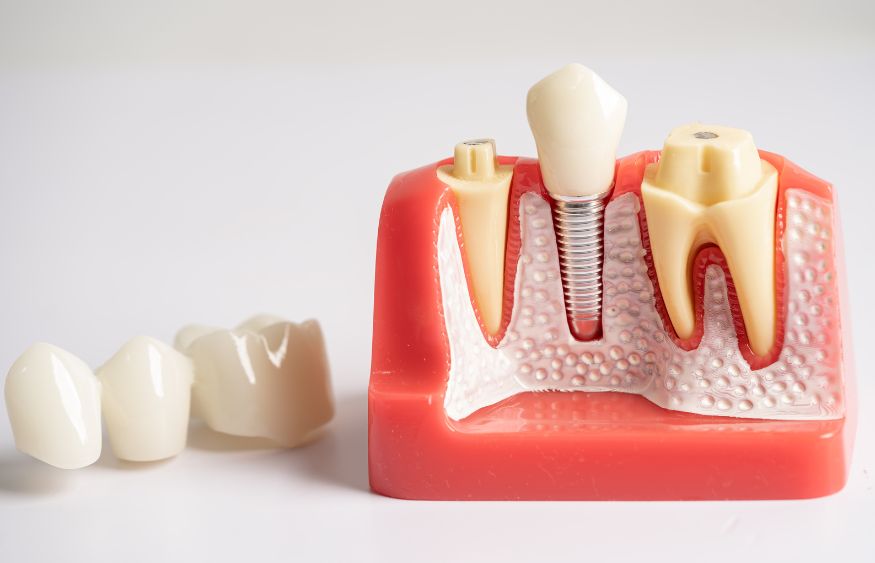
Many patients wonder whether a root canal is necessary before getting a dental crown. The answer varies depending on the health of your tooth and the reason you need the crown.
In this guide we explain:
Dental crowns are one of the most common and effective solutions for restoring damaged teeth, improving their appearance, and enhancing their strength. However, many patients wonder whether a root canal is required before getting a dental crown.
A Dental Crown is a tooth-shaped cap that covers a damaged or weakened tooth to restore strength function and appearance. Crowns are commonly used when a tooth is:
Cracked or broken
Extensively decayed
Fractured from old large fillings
Weak due to root canal treatment
Part of a dental implant restoration
Crowns are typically made from porcelain ceramic metal or a combination of materials that match your natural teeth.
A Root Canal is a dental procedure that treats the infected or inflamed inner portion of the tooth called the pulp. The pulp contains nerves, blood vessels and connective tissue. When bacteria enter the pulp through decay or cracks, it can cause severe pain and infection.
During a root canal the dentist removes the infected tissue cleans and disinfects the root canals and fills and seals the space to prevent reinfection. After healing most teeth still need coverage with a crown to protect them long-term.
The short answer is no — not always.
You need a root canal before a crown only if the pulp inside the tooth is infected or damaged.
? You have deep decay that reaches the pulp
? You have an abscess at the root tip on an x-ray
? You experience persistent toothache or sensitivity
? You have inflammation from trauma or crack extending into the pulp
If the inner nerve of the tooth is healthy and not infected then a crown can often be placed without a root canal.
A dental crown can be placed without a root canal if the tooth:
Has no pulp infection
Has no symptoms of nerve damage
Shows no radiographic signs of decay or abscess
Is being restored for cosmetic or structural reasons only
In these cases the dentist prepares the tooth, takes impressions, and places the crown without needing a root canal.
Here are common symptoms that may indicate the need for a root canal before your crown:
Persistent tooth pain
Severe pain when biting or chewing
Prolonged sensitivity to hot or cold
Swelling or tenderness in gums near the tooth
Darkening or discoloration of the tooth
Pus or bad taste from the infected area
Your dentist will perform tests and take x-rays to confirm whether the nerve is damaged.
Your dentist examines your tooth, asks about symptoms, and takes x-rays to assess the root and pulp health.
If signs of infection or inflammation are present you will need a root canal before the crown.
A local anesthetic is used, the dentist removes the infected pulp, cleans and disinfects the canals, and seals them. A temporary filling may be placed until the tooth heals.
Your dentist may wait a short period for healing before placing the crown. This ensures the tooth is stable.
The tooth is shaped, impressions are taken, and a custom crown is fabricated. The final crown is cemented in place for protection and function.
In some cases a tooth may seem fine before crown placement but develop pulp damage after. This can happen if:
Decay was deeper than initially visible
The nerve was inflamed but not symptomatic
The tooth experienced trauma during preparation
Long extensive restorations stressed the pulp
If this occurs your dentist may recommend a root canal after the crown is placed. Sometimes the existing crown needs temporary removal and re-cementation after treatment.
The cost of a root canal and crown varies widely based on:
Tooth location (front or back)
Severity of infection
Materials used for the crown
Clinic location and dentist experience
Root canal treatment is typically less costly than a crown alone, but when both are needed the total cost increases. Your dentist will provide a detailed estimate during your consultation.
After a root canal pain usually subsides within a few days. Some mild soreness is normal as the tooth heals.
Once the crown is placed most patients adapt quickly and report restored function and comfort. Good oral hygiene and regular dental checkups help maintain crown health for years.
Brush twice daily with fluoride toothpaste
Floss daily to remove plaque between teeth
Avoid hard or sticky foods that crack teeth
Visit your dentist for regular checkups
Address cracks or small cavities early before they worsen
Preventive care reduces the need for extensive treatment like root canals and crowns.
You do not always need a root canal before getting a dental crown. It depends on the health of the tooth pulp and whether there is infection or nerve damage.
A thorough dental evaluation including x-rays and clinical examination is required to decide the best treatment approach. Your dentist will explain whether a root canal is necessary and help you understand the cost timeline and recovery.
If you want a healthy strong smile with lasting results a properly placed crown can protect your tooth and restore function whether or not a root canal is needed first.